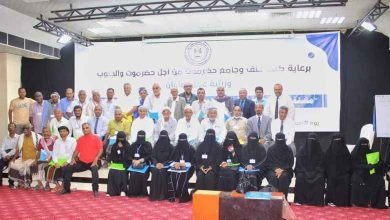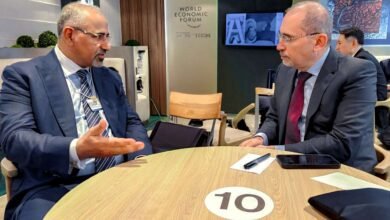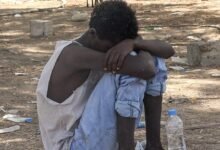internationalSouth Arabia
Yemen’s peace talks to start in Sweden next week: British envoy
[su_label type=”info”]SMA News – Agencies[/su_label][su_spacer size=”10″] U.N.-sponsored peace talks between Yemen’s warring parties are expected to start next week in Sweden, Britain’s envoy to Yemen said on Thursday, as Western allies press for an end to the war that has pushed the country to the verge of starvation.
The United Nations is trying to reconvene talks between the Saudi-backed government led by Abd-Rabbu Mansour Hadi and the Iranian-aligned Houthi group who control much of the north to agree a framework for peace and a transitional governing body.
A previous round in Geneva collapsed in September when the Houthis failed to show up.
The outrage over the killing of Saudi journalist Jamal Khashoggi has increased scrutiny on Riyadh’s role in conflicts in the region, potentially giving Western powers, which provide arms and intelligence to the Saudi-led military coalition trying to restore Hadi to power, greater impetus for action.
“The Sweden consultations led by the U.N. envoy will take place next week … the political solution is the way to move forward,” Michael Aron, the Riyadh-based British ambassador to Yemen, tweeted to the Houthis’ spokesman Mohammed Abdusalam.
Britain is a major arms supplier to Saudi Arabia and opposition politicians and human rights groups have called on the government to cease such sales due to the high civilian death toll in air raids by the coalition in Yemen.
Germany has moved to halt arms sales to Saudi Arabia over the Khashoggi killing and Denmark has suspended future approvals of weapons and military equipment exports there.
Martin Griffiths, the U.N. envoy to Yemen, met representatives of Yemen’s political parties in Jordan’s capital Amman on Thursday.
Two representatives who attended the meeting said Griffiths hoped to hold the next round on Dec. 4, but it would depend on the evacuation of 50 wounded Houthis, which the U.N. envoy said it would happen by Monday.
Saudi Arabia has confirmed its willingness to evacuate the wounded Houthis as a confidence-building measure, British Foreign Secretary Jeremy Hunt told Reuters this month.
The last U.N. attempt to convene the warring parties collapsed after the Houthis asked for guarantees from the United Nations that their plane would not be inspected. They also wanted to evacuate some of their wounded to Oman for treatment.
Kuwait has offered to provide planes for the parties to ensure the participation of both sides in Stockholm.
A spokeswoman from Griffiths’ office declined to give an exact date for the talks. “Preparations are ongoing as planned and we hope the consultations will convene in early December,” she said.
The United Nations hopes to get an agreement on Hodeidah port, the entry point for the bulk of Yemen’s commercial imports as well as the much-needed aid supplies, that will lead to a broader ceasefire.
The Houthis have agreed to hand over the management of the port to the United Nations, but both parties in the war still have to agree on who will hold the control over the city.
The coalition, which renewed its offensive to capture the port this month, has said taking control of Hodeidah would cut off the Houthis’ main supply line and force them to adopt a softer stance on the negotiating table.
But the international community fears an all-out attack on the port could disrupt its operations and lead to a famine in the impoverished country, where an estimated 8.4 million people are facing starvation.
The United Nations has no up-to-date estimate of the death toll in Yemen. It said in August 2016 that according to medical centers at least 10,000 people had been killed.
The U.N. humanitarian chief, Mark Lowcock, visited Sanaa on Thursday and called on authorities in Sanaa to improve the environment in which the aid agencies operate and urged all sides to attend the talks.
The United Nations is trying to reconvene talks between the Saudi-backed government led by Abd-Rabbu Mansour Hadi and the Iranian-aligned Houthi group who control much of the north to agree a framework for peace and a transitional governing body.
A previous round in Geneva collapsed in September when the Houthis failed to show up.
The outrage over the killing of Saudi journalist Jamal Khashoggi has increased scrutiny on Riyadh’s role in conflicts in the region, potentially giving Western powers, which provide arms and intelligence to the Saudi-led military coalition trying to restore Hadi to power, greater impetus for action.
“The Sweden consultations led by the U.N. envoy will take place next week … the political solution is the way to move forward,” Michael Aron, the Riyadh-based British ambassador to Yemen, tweeted to the Houthis’ spokesman Mohammed Abdusalam.
Britain is a major arms supplier to Saudi Arabia and opposition politicians and human rights groups have called on the government to cease such sales due to the high civilian death toll in air raids by the coalition in Yemen.
Germany has moved to halt arms sales to Saudi Arabia over the Khashoggi killing and Denmark has suspended future approvals of weapons and military equipment exports there.
Martin Griffiths, the U.N. envoy to Yemen, met representatives of Yemen’s political parties in Jordan’s capital Amman on Thursday.
Two representatives who attended the meeting said Griffiths hoped to hold the next round on Dec. 4, but it would depend on the evacuation of 50 wounded Houthis, which the U.N. envoy said it would happen by Monday.
Saudi Arabia has confirmed its willingness to evacuate the wounded Houthis as a confidence-building measure, British Foreign Secretary Jeremy Hunt told Reuters this month.
The last U.N. attempt to convene the warring parties collapsed after the Houthis asked for guarantees from the United Nations that their plane would not be inspected. They also wanted to evacuate some of their wounded to Oman for treatment.
Kuwait has offered to provide planes for the parties to ensure the participation of both sides in Stockholm.
A spokeswoman from Griffiths’ office declined to give an exact date for the talks. “Preparations are ongoing as planned and we hope the consultations will convene in early December,” she said.
The United Nations hopes to get an agreement on Hodeidah port, the entry point for the bulk of Yemen’s commercial imports as well as the much-needed aid supplies, that will lead to a broader ceasefire.
The Houthis have agreed to hand over the management of the port to the United Nations, but both parties in the war still have to agree on who will hold the control over the city.
The coalition, which renewed its offensive to capture the port this month, has said taking control of Hodeidah would cut off the Houthis’ main supply line and force them to adopt a softer stance on the negotiating table.
But the international community fears an all-out attack on the port could disrupt its operations and lead to a famine in the impoverished country, where an estimated 8.4 million people are facing starvation.
The United Nations has no up-to-date estimate of the death toll in Yemen. It said in August 2016 that according to medical centers at least 10,000 people had been killed.
The U.N. humanitarian chief, Mark Lowcock, visited Sanaa on Thursday and called on authorities in Sanaa to improve the environment in which the aid agencies operate and urged all sides to attend the talks.








